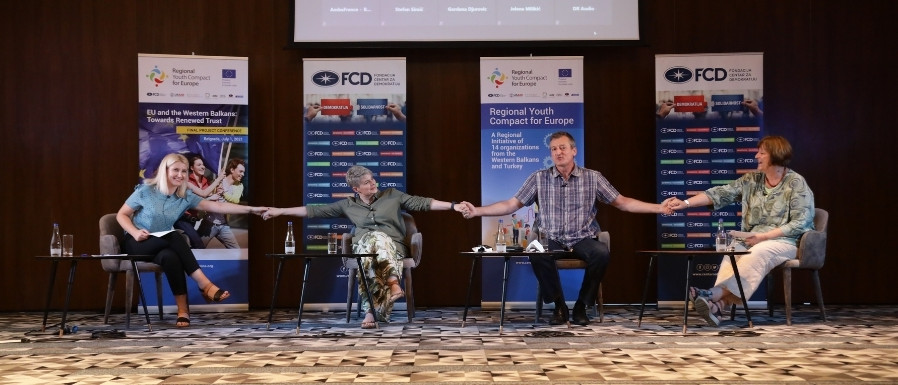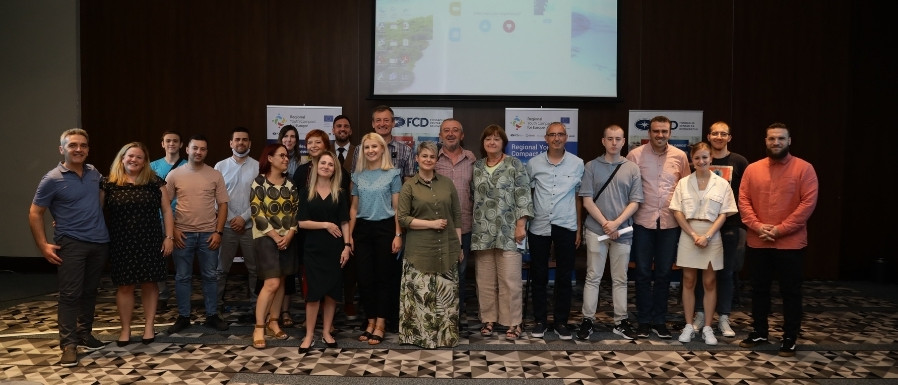A great moment of share within ALDA project Regional Youth Compact for Europe (RYCE) in Western Balkans, which ended in May 2021.
The roads ahead of us are going to be difficult, but fundamentally speaking, we are optimistic for the future of Europe and the youth, and in the last conference under the Regional Youth Compact for Europe(RYCE) project, this was very clearly expressed by everyone, who has participated.
The RYCE Final Project Conference was held on July 1, 2021, in the city of Belgrade, Serbia, at the Metropol Hotel. The conference conducted with a hybrid format, with 36 participants viewing from the Zoom platform. Together with ALDA, there was a great number of participants – be they networks and organisations, including 13 partners.
The Regional Youth Compact for Europe project lasted for 3 years, with the aim of empowering youth organisations and other civil society groups in the Western Balkans as well as Europe. More into details, the project took into account policy design, mobilisation of participation and better decision-making among the younger generations, and EU integration monitoring.
The conference showed great optimism for the future of Europe and of youth
The topic of the first panel concerned the relationship between the Western Balkans and Europe, the second one was about youth expectations for outlooks of European integration alongside with a research presented on the matter, while the third and last panel had representatives from Local Democracy Agencies to discuss local democracy and civic initiatives.
Overall, the conference showed great optimism for the future of Europe and of youth, but also stressed the importance of investing in younger generations; by monitoring the function of democracy and by building trust. The approaches envisaged are largely bottom-up and pan-European, in order to achieve these kind of goals. Thus, youths effectively need to be mobilised for greater participation, they need to be provided with information about policy matters that concern them, while boosting on digital tools to enable them to get valuable news and knowledge within this realm.
Talking about digitalisation, it was also highlighted that as of July 1, roaming agreements were put into place in the Balkans with the help of the European Union. 18 million people among Albania, Bosnia and Herzegovina, Kosovo, Montenegro, North Macedonia and Serbia will know have the possibility to “roam like at home”, meaning that no extra money to spend when using their phones when travelling within the region. Regional integration a key to make steps forward. The latter, in fact, continues to be a topic of great importance.
Going back to the overall Final Conference, time was also given to present results of surveys for the youth done at this time of the year in 2020. From a general perspective, it can be said that this meeting proved to be a productive dialogue, showing the accomplishments of the last 3 years of the Regional Youth Compact for Europe project. Nonetheless, youth mobilisation, as well as European integration benchmarks are still very much something that needs to be further sustained.
***
This Final Conference is in the framework of the project “Regional youth compact for Europe” implemented by the Centar for Democracy Foundation (lead partner), Balkan Network for Local Democracy, CRTA, Youth Act and Sodem. This project is funded by the European Union.

